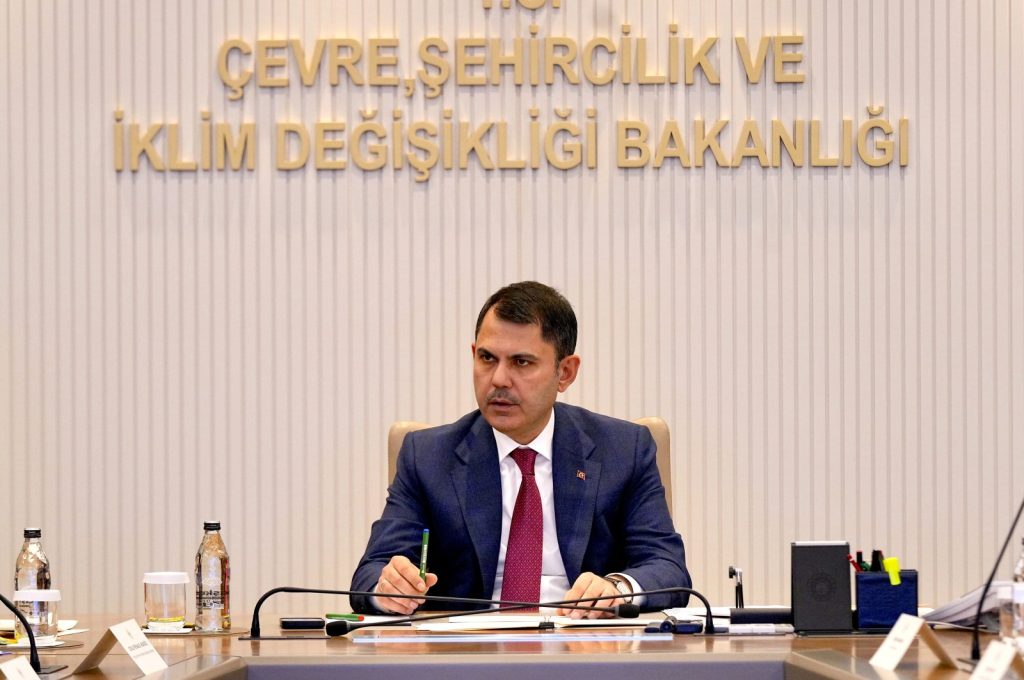Environment, Urban Planning and Climate Change Minister Murat Kurum will unveil Türkiye’s national strategy and action plan to combat desertification in the upcoming COP16 in Riyadh, Saudi Arabia.
Saudi Arabia this week will host the COP16 U.N. conference on land degradation and desertification next week as the top oil exporter pitches itself as an environmental defender despite criticism of its role at climate talks. U.N. Secretary-General Antonio Guterres called the United Nations Convention to Combat Desertification (UNCCD) meeting a “moonshot moment” to protect and restore land and respond to drought. Activists accused Saudi Arabia, the world’s biggest oil exporter, of trying to water down calls to phase out fossil fuels at last week’s COP29 U.N. climate talks in Azerbaijan. However, the subject of desertification is close to home for the Gulf kingdom, which has one of the biggest deserts on the planet.
Türkiye is preparing to contribute to global cooperation in the fight against climate change, desertification, and land erosion at COP16. Kurum is expected to hold bilateral talks at the summit to that extent. The country will also set up a pavilion at the summit where panels and activities to highlight measures against phenomena and for sustainable agriculture, among other topics.
Land degradation disrupts ecosystems and makes land less productive for agriculture, leading to food shortages and spurring migration. Land is considered degraded when its productivity has been harmed by human activities like pollution or deforestation. Desertification is an extreme form of degradation. The last gathering of parties to the convention, in Ivory Coast in 2022, produced a commitment to “accelerating the restoration of 1 billion hectares of degraded land by 2030.” However, the UNCCD, which brings together 196 countries and the European Union, now says 1.5 billion hectares (3.7 billion acres) must be restored by the end of the decade to combat crises, including escalating droughts.
The recent COP29 climate talks yielded a hard-won $300 billion climate finance deal that poorer nations most at risk of worsening disasters dismissed as insultingly low.
UNCCD executive secretary Ibrahim Thiaw told Agence France-Presse (AFP) he hoped COP16 would result in an agreement to accelerate land restoration and develop a “proactive” approach to droughts. “We have already lost 40% of our land and soils,” Thiaw said. “Global security is really at stake, and you see it all over the world. Not only in Africa, not only in the Middle East.”
Saudi Arabia’s high oil production, resulting in eye-watering profits for oil giant Aramco, routinely draws the ire of climate activists. But its exposure to desertification could give it more credibility during the Riyadh talks. “With the desertification fight, (Saudi Arabia is) not necessarily directly contributing to the problem, whereas with climate change, it is,” claimed Patrick Galey, senior fossil fuels investigator for Global Witness. “Saudi Arabia can, with some legitimacy, claim to be standing up for the little guy when it comes to desertification because it is directly affected.”
Thousands of delegates have registered to attend the Dec. 2-13 talks in Riyadh, including “close to 100” government ministers, Thiaw said. French President Emmanuel Macron is due to attend the One Water Summit, taking place on the sidelines of COP16 on Dec. 3.


